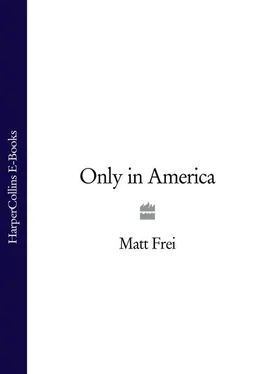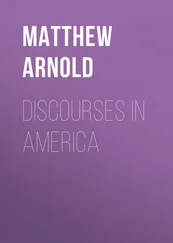The birth of America was as messy and as stressful as the drafting of the documents that defined it. The mere fact that the amendments to the Constitution are as famous and as important as the Constitution itself points to a process riddled with afterthoughts and contention. The founding fathers were like survivors from a shipwreck who had managed to salvage the best ideas and principles from the sinking vessel of eighteenth-century Europe and transplant them to the virgin territories of the New World. It was an extraordinary social experiment and what is so compelling is the journey between those incipient ideals and the reality of American power today. America is a pilgrim’s colony that has morphed into the mightiest military superpower the world has ever seen. It has gained strength and influence not because of its might but because of the ideas it embodies.
It is the shining city on the hill, as Ronald Reagan famously described it (misquoting Benjamin Franklin), but the city has become surrounded by ramparts and gun turrets. Can America be both an empire, determined to smite enemies sworn to its destruction, and an open democracy? Is there still a link between the annotations of the Bill of Rights and the 2002 Patriot Act, which has given this administration unprecedented power to interfere with the lives of its citizens? Has Guantanamo Bay killed the Gettysburg Address? Has the idea of America been trampled by the reality of power? These are the questions that keep Washington awake today, first as a whisper and now as a roar. This is the debate that underpins the most open and unpredictable election campaign in at least half a century. America is scratching its head, chewing its nails and peering uneasily into its soul. The country is on the psychiatrist’s couch, taking a collective ‘emotional inventory’. The fleeting certainties forged in the heat of revenge after 9/11 have become brittle.
The Iraq war is increasingly being compared to the debacle of Vietnam, where creeping defeat created feverish self-doubt and introversion. Today’s experience could arguably turn out to be worse. There’s the potential of meltdown in Iraq spreading to the region. The impact on oil prices; the spectre of a Sunni – Shia civil war tearing the Middle East apart. And then there’s the self-inflicted wound on America. As the sole remaining superpower the United States no longer has the luxury of icing failure with comparisons to the Red Soviet peril. Since the end of the Cold War it has been judged alone on the basis of its own merits and failures and not someone else’s. And whatever you say about America, the people who call this country home are far happier being loved than feared. America was, after all, born to please.
The disdain that many Americans feel for the Beltway tends to melt away when they actually visit the Nation’s Capital and wander awe-struck among its monuments. The spinal cord of monumental Washington is the Mall, a mile-long runway of manicured grass, shallow reflection pools and war memorials that extends from the foot of Capitol Hill to the Lincoln Memorial. It is a showcase, made for parades and gatherings of a million people, at the very least. Most days it is circled by tour buses rather than chariots, trampled by joggers and not horses. The architectural scale is Roman and imperial. The activity is distinctly American. The joggers, of whom there are thousands, are lean, taut and grimacing with determination. Presumably these are alpha people who run the most powerful city in the world, replenishing their endorphins, working off some of that imperial rage. Those not jogging are probably tourists who have come to marvel at the theatre of power.
The focal point of the Mall is the 555-foot-high obelisk of the Washington Monument. This is the white needle at the heart of the city. On a clear day you can see it for miles before you land at the capital’s airport. After sunset two red lights blink at the approaching aircraft and the needle looks suspiciously like an emaciated member of the Ku Klux Klan with conjunctivitis. On one side of the monument, set back among trees and a small park, is the White House. On the other sits the brooding Smithsonian Castle, the institution that was founded in 1861 thanks to a bequest by the Englishman James Smithson. Its architecture can best be described as Gothic Victorian. Resembling a red brick teacher training college in Middle England, it looks out of place amid the neoclassical splendour of Washington. Smithson was a scientist who made a fortune, loved the idea of America but never actually went there. The seed money from his foundation has funded all the great museums that line the Mall and, astonishingly for America, charge no entry fee.
At the Virginia end of the Mall, Abraham Lincoln slumps on his throne surrounded by marble columns and stone slabs, etched with quotes from the Gettysburg Address. The expression on his bearded face is a curious mixture of resignation and wisdom. It’s what you might expect from a gloomy fellow who suffered severe bouts of depression and steered his country through the bloodiest conflict America has ever fought. Irreverent pigeons congregate on his head and use it as a lavatory. At the other end, straddling the hill it is named after, sits the Capitol, the tallest building in Washington, above which no other edifice is allowed to rise. After two hundred years it still dominates the skyline and has avoided being dwarfed by the corporate spires that define virtually every other American city. White and resplendent, the Capitol sits like a huge, domed wedding cake on top of a pedestal. It is both a monument celebrating ‘the greatest democracy on earth’, as the tour guides put it, and a living, breathing, lunching, legislating parliament. Most Americans admire the building and what it stands for but have a very dim view of the electors who toil inside it. Opinion polls repeatedly give the assembly of congressmen and senators pitifully low marks of approval. In fact it’s hardly surprising that Washington, DC, is so hated. It is after all the favourite haunt of America’s three most loathed professions: lawyers, politicians and lobbyists. The latter are particularly despised: a lobbyist is an amalgam of the first two enriched by huge fees. Eighty per cent of congressmen and women end up working for lobby firms. The city boasts an astonishing 32,000 lobbyists, compared to 8000 policemen and 3000 teachers.
Every four years, in the middle of January, the American public is prepared to turn its gaze away from the entrails of government and the Capitol becomes a giant stage for the celebration of the presidency. Think of it as an arranged wedding that finally takes place after months of wrangling over the dowry, fights among the family factions and arguments about the cost of the party. Presidential election campaigns are marathons of mutual malice. The inauguration of the winner is an opportunity for everyone to kiss and make up and celebrate the commander-in-chief before the next round of mud-slinging. Even after George W. Bush won the bruising Florida recount in 2000 and was hoisted across the finishing line by the Supreme Court, the bile and acrimony were suspended for a day as Al Gore, the former Vice President, graciously congratulated his opponent and President Bush took the oath of office.
On that occasion, too, the grand terrace in front of Capitol Hill was decked with red, white and blue bunting. Giant flags were draped over the sides. An arena of seats rose out of the ground and the Mall was packed with tourists and local citizens watching the ceremony on super-sized video screens and hundreds of policemen and secret service agents watching the audience. If the President is the bride on Inauguration Day, the Constitution is the groom. Every presidency is a continuation of the sacred covenant between the elected leader and the founding fathers, who framed the Constitution. No wonder this is an occasion when arch rhetoric is pushing at an open door. George Bush may not be known for his articulacy but after his re-election in 2004 he and his principal speech writer, a fellow born-again Christian called Michael Gerson, worked tirelessly to earn their place in The Book of Great Quotations . On a freezing day, while thousands shivered in the snow, George Bush mounted the podium under leaden skies and talked about America’s mission ‘to end tyranny on our earth’, the ‘universal God-given right to liberty’ and the nation’s burden to help bestow this gift on the less fortunate inhabitants of this planet. The reality of a bruising, failing war in Iraq, a mounting body count, Osama bin Laden on the loose and the blatant unwillingness of many countries to have Lady Liberty thrust upon them barely impinged on the audience. They were hooked. On occasions patriotic rhetoric seems like a benign opium of the masses. It encourages them once again to believe and for a brief moment it’s as if the entire nation was entranced by the ritual being enacted before their eyes.
Читать дальше

![Нил Уолш - Единственное, Что Имеет Значение [The Only Thing That Matters]](/books/393630/nil-uolsh-edinstvennoe-chto-imeet-znachenie-the-onl-thumb.webp)










